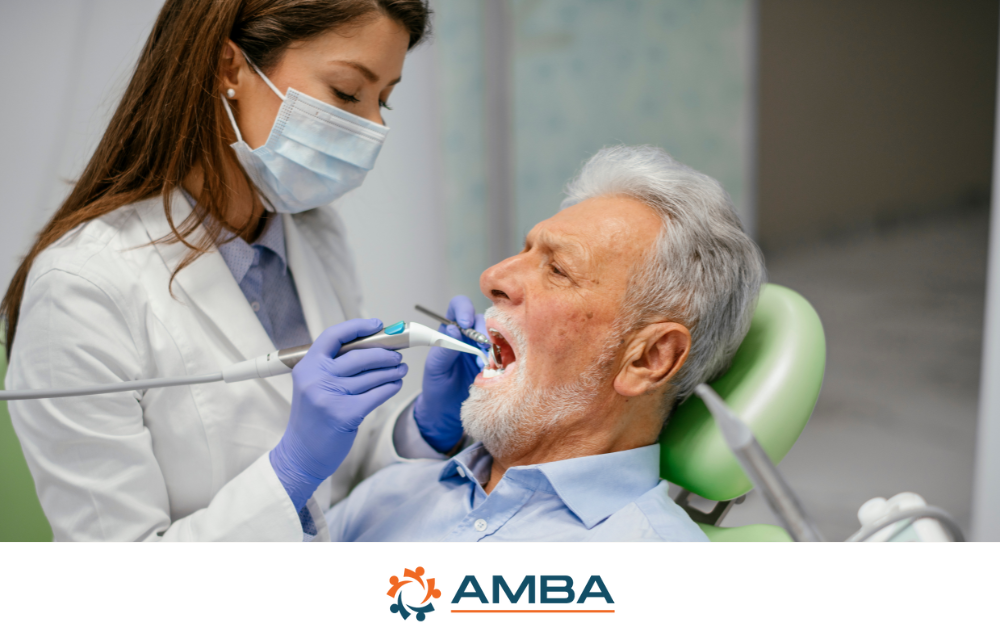News from Jones Street
Your weekly legislative updates from Jackson Cozort, RGEA Director of Government Relations.
Your weekly legislative updates from Jackson Cozort, RGEA Director of Government Relations.
A letter from North Carolina State Treasurer Brad Briner.
June 17, 2025 | Join us for this FREE event to meet other state and local government retirees and hear from experts on your health and retirement plans, pension and Social Security information, and more.
RGEA is accepting nominations for the 2025 Vann Langston Public Service Award.

People who require an emergency ambulance trip frequently ask the same question upon receiving the bill: “Why was the cost of the ambulance so high?” It might seem that a short ride to the hospital should cost about as much as an Uber ride. However, ambulance rides and Uber rides are two very different services.
Emergency medical teams require hands-on experience to handle emergencies effectively. In addition to the expense of training Emergency Medical Services personnel, at least two people are often necessary for each patient in an ambulance.
Ambulance users pay for the assistance they receive as well as for the readiness of the ambulances. Additionally, all equipment and staff must comply with local and state regulatory requirements, and the costs of maintaining them can accumulate. Treatment equipment in the vehicle used to stabilize a trauma patient before reaching the destination may include emergency ventilators, stretchers, cardiac monitors, infusion pumps, nebulizer machines, oxygen, and more.
Even if a patient does not receive additional care during the ambulance ride, the service does not itemize medications or other treatments that may occur during the transport. Patients are charged for either basic life support or advanced life support.
In fact, the least expensive aspect of an ambulance trip is the trip itself; the mileage fee typically makes up the smallest portion of the final bill.
Regardless of the cost, it is crucial to prioritize getting trauma patients to the hospital as quickly and safely as possible during an emergency. An Uber ride cannot match the care provided by an experienced EMS team equipped with vital resources.
You can safeguard yourself from the expenses of emergency medical transportation. Medical Air Services Association (MASA) can protect you from catastrophic financial loss when emergencies occur at home or while traveling by covering your ambulance or airlift, regardless of age or medical condition. Services can be covered in full, without deductibles, co-pays, or dollar limits. MASA offers coverage 24 hours a day, 365 days a year.
MASA’s benefits extend beyond emergency transportation. Your MASA membership also includes Escort Transportation (allowing a loved one to accompany you to the hospital), Visitor Transportation (enabling a loved one to visit if you are away from home for over a week), Organ Retrieval/Recipient Transportation, Repatriation, Children and Pet Return, and more.
Your care is paramount in an emergency. Getting a MASA policy today can give you peace of mind from cost concerns. RGEA and AMBA make enrolling in MASA simple. You can even sign up online. Learn more at www.AMBAmedtransport.com/NCRGEA or call 800-956-1228.

Have you ever experienced pain or noticed persistent sensitivity in your teeth? You might have a cavity. Cavities are common, but they are often overlooked until they worsen significantly. The health of your teeth is crucial to your overall well-being. Discover what causes cavities, how to prevent them, and why it’s important to visit a dentist at the first sign of trouble.
Cavities, clinically known as dental caries, are common dental issues that affect a significant portion of the population. Approximately 90% of adults in the United States have had a cavity at some point in their lives, and nearly 30% of adults have an untreated cavity.

Understanding how cavities develop, recognizing their symptoms, and maintaining good oral health is essential for everyone.
Cavities primarily form due to bacteria that accumulate in the mouth, leading to plaque buildup. When sugary foods are consumed, these bacteria thrive, producing acids that can wear away enamel, the hard protective layer of the teeth.
Initially, there may be no symptoms since enamel does not contain nerve endings. However, as decay progresses toward the more sensitive areas of the tooth, discomfort may become apparent.
Being aware of the symptoms can help in early intervention and prevention. Here are several signs to consider:
1) Tooth Pain or Sensitivity: Increased sensitivity to hot, cold, or sweet foods may indicate a problem. Pain when biting can also be a sign.
2) Holes or Pits in Your Teeth: Gently running your tongue over your teeth may reveal rough patches or visible holes, which should not be ignored.
3) Stains on Your Teeth: Watch for white, brown, or black spots. A white spot could indicate that a cavity can still be reversed, but prompt attention is advisable to prevent further issues.
If you suspect a cavity, it’s important to act quickly. Schedule an appointment with your dentist as soon as possible. Many cavities can be effectively treated, especially if detected early. During your visit, your dentist may take X-rays to assess the extent of the decay and suggest appropriate treatment options, ranging from fillings to more extensive procedures like crowns or root canals if necessary.
Prioritizing your dental care is crucial. You can keep a healthy and bright smile for years by taking proactive steps to prevent cavities. Regular check-ups with your dentist are essential for spotting potential issues before they develop. RGEA and AMBA offer a Dental Plan that includes check-ups, cleanings, and various procedures, such as fillings, crowns, implants, and more. Additionally, you can choose any dentist you prefer, with extra savings if you see an in-network provider. Visit www.AMBAdentalvision.com/ncrgea or call 800-956-1228 to get started.
Source:

This healthy chicken stir-fry is packed with flavor and has an array of fresh vegetables bursting with vibrant colors and nutritious benefits.
Stir-frying is a traditional Chinese cooking method. This recipe consists of two parts: first, marinated chicken breasts are stir-fried. Next, the cooked chicken is set aside, and the vegetables are stir-fried. Finally, the chicken is mixed back in, and a delicious stir-fry sauce is added that thickens and enhances the flavor of the entire dish.

For the marinade:
For the Stir Fry:

March is Women’s History Month, a time to celebrate women’s contributions to American history and society. It’s also an excellent opportunity to focus on women’s unique health needs, particularly eye health. Women over 55 should prioritize their vision health since they are at a higher risk for certain eye diseases. For instance, two-thirds of individuals living with blindness or visual impairment are women. AMBA is here to help you identify concerns and risks related to women’s eye health and the steps you can take to keep your eyes healthy.
Women are at a greater risk for several reasons, among them:
These factors contribute to the significant difference in eye health between the genders. The statistics are revealing: in each case, the incidence of women suffering from conditions like age-related macular degeneration (AMD), glaucoma, cataracts, and visual impairments is over 60%.
For the reasons above, women need to be aware of specific vision issues they may encounter. These include:
All too often, women put the needs of others before their own. However, it’s crucial to remain mindful of your health. Here are some empowering steps to take to safeguard your eyes:
Use Cosmetics Safely: Keep your eye makeup fresh and replace it every three months to avoid infections from old products. It’s better to be safe than sorry!
These steps can help you enjoy healthier, happier eyes and prevent potential problems. Of course, eye exams are also essential. That’s why the Vision Plan from RGEA and AMBA covers annual comprehensive WellVision examinations. The plan also provides access to thousands of in-network providers nationwide and offers 100% coverage for most lenses, including progressives. Sign up today at www.AMBAdentalvision.com/NCRGEA or call 800-956-1228. This Women’s History Month, let’s celebrate women’s achievements and take charge of our health and well-being—because your vision matters!
Sources:
www.nei.nih.gov/sites/default/files/health-pdfs/NEI101261-04-001HVM2017Infographic-r8.pdf
https://healthcare.utah.edu/healthfeed/2023/04/why-women-need-pay-extra-attention-eye-health